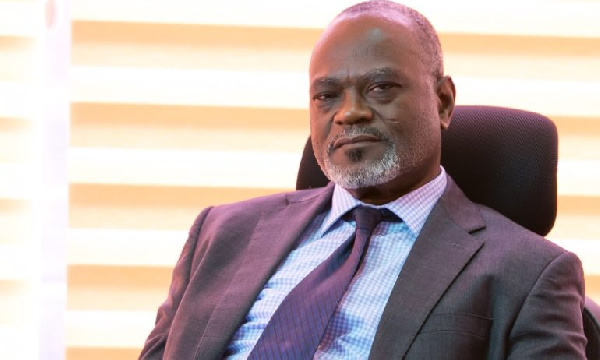
Africa lacks sufficient regional integration institutions – UG Chancellor

Africa lacks sufficient regional integration institutions to train responsible personnel and churn out such a cadre, without which the pace of integration would continue to be slow, Mrs Mary Chinery-Hesse, Chancellor, University of Ghana, has said.
She said the African Continent had not paid sufficient attention to the importance of building the institutional and human capital fit for purpose.
She said there is a crucial need to enhance, national, regional and continental capacity to generate the skills set for the serious business of accelerating the African Union (AU) project.
Mrs Chinery-Hesse, who is also the Chair of the Board of Trustees of the Centre for Regional Integration in Africa (CRIA), made these remarks on Tuesday in Accra at the opening of the Regional Integration Issues Forum (RIIF) 2019 Policy Dialogue on “Enhancing National Capacity for Regional and Continental Integration in Africa”.
Africa’s region-building and regional integration were originally linked with Pan-Africanism as an economic and political tool for achieving political emancipation of the territories still under colonial domination.
It is now widely recognised as a necessary condition for the long term sustainable development of African countries.
It is anticipated that the RIIF 2019 Sensitization Forum would build the confidence of participants and produce increased stakeholders interest and commitment to implement regional and continental integration agenda for national development.
The two-day meeting is being organised by the Ministry of Foreign Affairs and Regional Integration in collaboration with the CRIA and the Africa Capacity Building Foundation (ACBF).
Mrs Chinery-Hesse said the discussions on regional integration would identify the magic bullet which would move the rhetoric of African Leaders right from the founding of the OAU in 1963, to definitive action which will positively impact the quality of life of our citizens.
“We might just together discover some stymies which have rendered the path so arduous, and focus on those which need to be prioritized for elimination, to hasten success,” she said.
“The wisdom of our forefathers gave them the foresight to see the integration of our Continent as the surest way of improving trade, increasing market size making their countries more competitive and efficient, and improving Africa’s clout at the negotiating table.”
She said the dream has remained largely elusive, but in recent times, a flicker of light at the end of the tunnel appears to be shining brighter and gives hope.
“I refer to the creation of the Continental Free Trade Area and Customs Union, which would be operationalized next month, as a primary step towards the establishment of a continent-wide Africa Economic Community.”
She said this positive development has coincided with a time that profound changes were occurring in the field of diplomacy, making the conduct of traditional diplomacy even more complex.
She said looking at the confusion unleashed by BREXIT, it behoves on Africans to ensure that those who speak on behalf of the Continent at the big table were smart and on top of global nuances.
Mrs Chinery-Hesse said CRIA stands by to assist in confronting the complex challenges which create the need for a premium to be placed on more learning in order to broaden horizons, sharpen perspectives and help officers keep abreast with unfolding dynamics, develop cutting edge analytical skills, and incisive negotiation capabilities.
Alhaji Mohammed Habib Tijani, a Deputy Minister of Foreign Affairs and Regional Integration, said the formation of most regional and sub-regional organisations such as the ECOWAS and the AU, which Ghana belongs, played roles in their formation and continues to deploy tremendous efforts towards its development, must continue to serve the continent.
Professor SKB Asante, Executive Director, CRIA, said the Centre was created to address capacity constraints of Africa’s region-building and regional integration.
Prof Emmanuel Nnadozie, Executive Secretary, ACBF, lauded Ghana for its tremendous support for the Foundation, since its establishment.
Source: citifmonline.com






